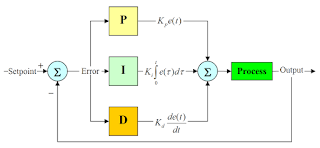General Thoughts on Feedback Strategies
Figure 1: PID Feedbaack Loop Wikipedia
Politeness and manners are the mechanism by which our society allows relative strangers to interact without degenerating into the uncontrollable violence found in non-human primates. The flaw with manners and politeness is that they can restrict certain forms of conflict and negotiation that may be necessary, especially for growth. The desire for politeness can lead to feedback which is disingenuously positive and unspecific. The Trouble with “Amazing”: Giving Praise that Matters covers this topic. Because there was nothing praiseworthy about the exercise session and the instructor felt that it was necessary to give positive feedback, she her praise was inaccurate. Furthermore, she couldn't find anything specific to praise, so she made the most generic comment that she could, and since the comment was so generic, there was no way to act on it.
Acting on feedback should be the main purpose of feedback. Hearing about how you did in the past is only useful insofar as it allows you to improve your performance in the future. While it is the responsibility of the one receiving the feedback to formulate an optimal course of action based on the information he receives, it is still useful to articulate a possible manner in which the individual you are giving feedback to can improve their future performance. This is the basic idea described in Try Feedforward Instead of Feedback. In this article the author explains the utility of recommending potential courses of action to individuals rather than simply telling them how they did.



Comments
Post a Comment